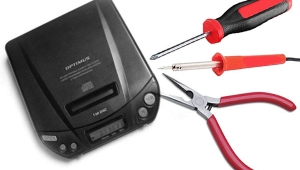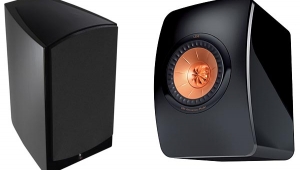| Columns Retired Columns & Blogs |
The Final Word: Ethics Letters page 2
With regard to business transactions, it seems that Mr. Bauza sees those transactions as situations where one person wins and the other loses. This view is a commonly held misconception among those who don't like capitalism and free markets. The reality is that, in a noncoerced business transaction, both parties gain. When I subscribe to Stereophile, I gain (or obtain value), and so does Stereophile. I want the magazine more than I want the money it costs me; Stereophile wants my money more than they want my copy of the magazine.
When Mr. Bauza buys a pair of speakers from his local retailer, they both gain. Unless, of course, Mr. Bauza was coerced into buying the speakers by something outside of his own values. The whole idea of the free market is that the businessman cannot succeed unless he satisfies the values of his customers.
Getting back to John Atkinson's September column, John goes to his local bookstore rather than using Amazon.com because he likes to browse, have coffee, or hear Richard Lehnert read poetry. The bookstore provides value to John that Amazon.com can't provide. The value, however, is personal value to John, not "social value" in the commonly perceived meaning of that phrase. The bookstore's product is not just books—it's the browsing, the ambience, the coffee. The bookstore must offer those things in order for John to patronize it rather than Amazon.com.
Providing such value has nothing to do with altruism, religion, politics, or social consciousness. It has everything to do with business success; and that is why, as Adam Smith recognized so long ago, the successful businessman in a free market makes life better for everyone whether he wants to or not. And that is why, as was John's main point in the September column, the audio retailer has to provide value to his or her customers or go out of business.
In closing, I completely agree with John when he says that, other things being equal, one who uses a local dealer's demonstration and audition facilities to choose equipment and then purchases it by mail-order just to save a few bucks is a thief. (Of course, it may depend on how many bucks are being saved, but that's another topic by itself!)
—John C. Rossmann john@synsys.synersys.com
But not Rockin' Ron's letter
Editor: Having been in the retail business, I feel more than a little disgusted by the letter written by "Rockin' Ron" in the November Stereophile (p.13). In his letter, Ron related how, due to his expert knowledge of high-end equipment, he ordered all his equipment through mail-order. May I suggest to him that since he has no use for his local shops that he also audition the equipment over the phone.
Ron has it backwards when he says he has no use for his local retailer. Really, it's that retailers have no use for customers like Ron. Think about it: If everyone bought everything mail-order, there would soon be no local shops in which to listen to the equipment before you buy.
Now I'm not suggesting you have to buy everything locally. I like to save money also. I buy used as well as mail-order. But I also support my local shops. Indeed, if I save a lot on a mail-order item that I have auditioned at a local shop, I will go back and give a check to the local shop for their efforts. Whether you realize it or not, Ron, your local shops are providing a valuable service for you, and they deserve your support.
—Alan Anderson alanande@concentric.net
- Log in or register to post comments




































